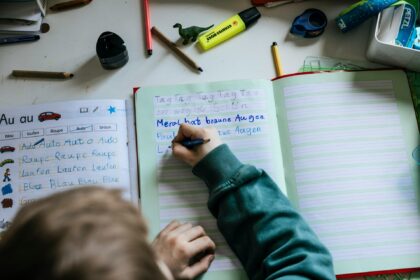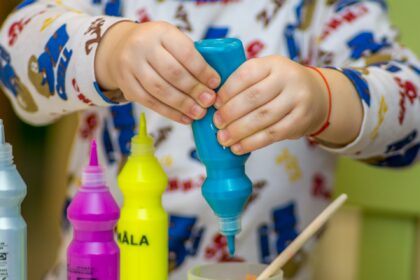As a parent, you naturally want the best for your child. One of the most significant gifts you can give them is a strong educational foundation. Education plays a vital role in shaping a child’s future, influencing their cognitive, social, and emotional development. This comprehensive guide aims to provide you with valuable insights into the importance of education and practical advice on how to support your child’s learning journey.
The Foundation of Education
Early childhood education sets the stage for lifelong learning. During the early years, children’s brains develop rapidly, and they are highly receptive to new information. Enrolling your child in preschool or kindergarten can provide structured learning experiences that promote cognitive growth, social skills, and emotional well-being. According to a study by the National Institute for Early Education Research, children who attend high-quality preschool programs are better prepared for academic success in later years.
The Benefits of a Strong Educational Foundation
A solid educational foundation offers numerous advantages:
- Academic Benefits: Children with a strong start in education tend to perform better in school, with improved literacy and numeracy skills.
- Social Benefits: Education fosters communication and social interaction, helping children build relationships and work collaboratively.
- Emotional Benefits: Confidence and self-esteem are often higher in children who succeed academically, providing a positive outlook on learning.
- Long-Term Impacts: A good education opens doors to higher education and better career opportunities, contributing to a higher quality of life.
The Role of Parents in Children’s Education
Parents play a crucial role in their child’s educational success. Creating a supportive learning environment at home, encouraging curiosity, and being involved in school activities are essential. Building a partnership with teachers and educators ensures that you are aligned with your child’s academic goals and progress.
Understanding Different Learning Styles
Children have unique learning styles, including visual, auditory, and kinesthetic, which significantly influence how they absorb and process information. Visual learners, who make up approximately 65% of the population, thrive on visual aids such as diagrams, charts, and written instructions. Auditory learners, about 30% of learners, excel when information is presented through spoken words, discussions, and auditory cues. Kinesthetic learners, the remaining 5%, learn best through hands-on activities and physical engagement.
Understanding your child’s learning style is crucial as it allows you to tailor educational activities to their needs, enhancing the effectiveness of their learning experience. For instance, if your child is a visual learner, incorporating more visual elements into their study routine can improve their comprehension and retention. Conversely, an auditory learner might benefit from listening to educational podcasts or engaging in discussions about the material. Identifying and adapting to your child’s learning style can significantly boost their academic performance and make learning more enjoyable and productive.
The Importance of Extracurricular Activities
Extracurricular activities, such as sports, arts, and clubs, play a vital role in a child’s overall development. Studies show that students who participate in extracurricular activities have higher academic performance, better attendance, and more positive attitudes towards school. According to the National Center for Education Statistics, students involved in extracurricular activities are three times more likely to have a GPA of 3.0 or higher compared to those who are not involved. These activities promote physical health, creativity, teamwork, and time management skills.
For example, sports can improve physical fitness and teach valuable lessons in discipline and teamwork, while arts and music enhance creativity and emotional expression. Balancing academics with extracurriculars ensures a well-rounded education, helping children develop diverse skills and interests that are crucial for personal growth and future success. Additionally, these activities can provide a sense of belonging and reduce the risk of behavioral issues, contributing to a positive school experience.
Addressing Common Challenges
Every child faces educational challenges, whether it’s learning difficulties, managing screen time, or dealing with academic pressure. Learning difficulties, such as dyslexia or ADHD, affect up to 20% of school-aged children, according to the Learning Disabilities Association of America. Early diagnosis and intervention are critical for these children to receive the support they need. Managing screen time is another common issue, with studies showing that excessive screen time can negatively impact academic performance and physical health. The American Academy of Pediatrics recommends no more than two hours of recreational screen time per day for children.
As a parent, it’s essential to address these issues with empathy and support. Providing resources like tutors or educational apps can help overcome these challenges and foster a positive learning experience. It’s also crucial to maintain open communication with your child and their teachers to identify and address any issues promptly. Encouraging healthy habits, such as regular exercise, adequate sleep, and a balanced diet, can also contribute to better academic performance and overall well-being.
The Impact of Education on Future Success
Education is a powerful predictor of future success, impacting everything from career opportunities to overall quality of life. According to the Bureau of Labor Statistics, individuals with a bachelor’s degree earn, on average, 66% more per week than those with only a high school diploma. Moreover, the unemployment rate for college graduates is significantly lower compared to those without a degree.
Real-life success stories, such as that of Oprah Winfrey, who overcame a challenging childhood to become a media mogul, highlight how education can transform lives. Studies have shown that higher education is associated with better health outcomes, higher civic engagement, and increased life satisfaction. Investing in your child’s education not only enhances their career prospects but also equips them with critical thinking skills, resilience, and a lifelong love of learning. Education fosters a sense of achievement and self-worth, contributing to personal growth and societal advancement. The correlation between education and quality of life underscores the importance of supporting your child’s academic journey from an early age.
Global Perspectives on Education
Education systems vary worldwide, and each culture values education differently. For instance, Finland’s education system is renowned for its student-centered approach and high academic standards. Finnish students consistently rank among the top in international assessments like the Programme for International Student Assessment (PISA). In contrast, the education system in Singapore emphasizes rigorous academic training and high expectations, resulting in strong performance in mathematics and science.
According to the World Economic Forum, countries like South Korea and Japan also place a high value on education, contributing to their economic success and innovation. By examining global education practices, we can learn valuable lessons about different approaches to teaching and learning. For example, Finland’s emphasis on teacher quality and small class sizes has proven effective in fostering student success. These insights can inform and improve our own educational strategies, ensuring that children receive a high-quality education regardless of where they live. Learning from global perspectives allows us to adopt best practices and innovative methods to enhance our education systems.
Practical Tips for Parents
To support your child’s education effectively, it’s essential to set realistic academic goals, encourage good study habits, and utilize available resources. Start by creating a structured study schedule that includes regular breaks to prevent burnout. Encourage good study habits such as active reading, note-taking, and summarizing information. Utilize educational resources like tutors, online courses, and educational apps to supplement their learning.

Maintaining open communication with teachers and staying involved in school activities can also provide insights into your child’s progress and areas that need attention. By actively participating in your child’s education, you can foster a positive learning environment that encourages curiosity, resilience, and a lifelong love of learning.
According to a study by the National Center for Education Statistics, students who receive tutoring show significant improvements in academic performance. Keeping up with educational trends and changes ensures that you can adapt to new challenges and opportunities in your child’s learning journey. For example, incorporating technology in education, like interactive learning apps and virtual classrooms, can provide engaging and personalized learning experiences.
Final Words
Education is a cornerstone of your child’s future success. By understanding the importance of education and actively participating in your child’s learning journey, you can provide the support and encouragement they need to thrive. Research consistently shows that parental involvement in education leads to higher academic achievement and better social skills. From recognizing and adapting to their unique learning styles to balancing academics with extracurricular activities, your role as a parent is crucial. Addressing common educational challenges with empathy and providing resources like tutors can help your child overcome obstacles.
Furthermore, understanding the global perspectives on education and implementing practical tips can enhance your child’s learning experience. Remember, your involvement makes a significant difference in shaping their academic achievements and overall development. Let’s work together to ensure our children have the best possible start in life, fostering not only their educational success but also their personal growth and future opportunities. Happy parenting, and may your child’s educational journey be rewarding and fulfilling.





